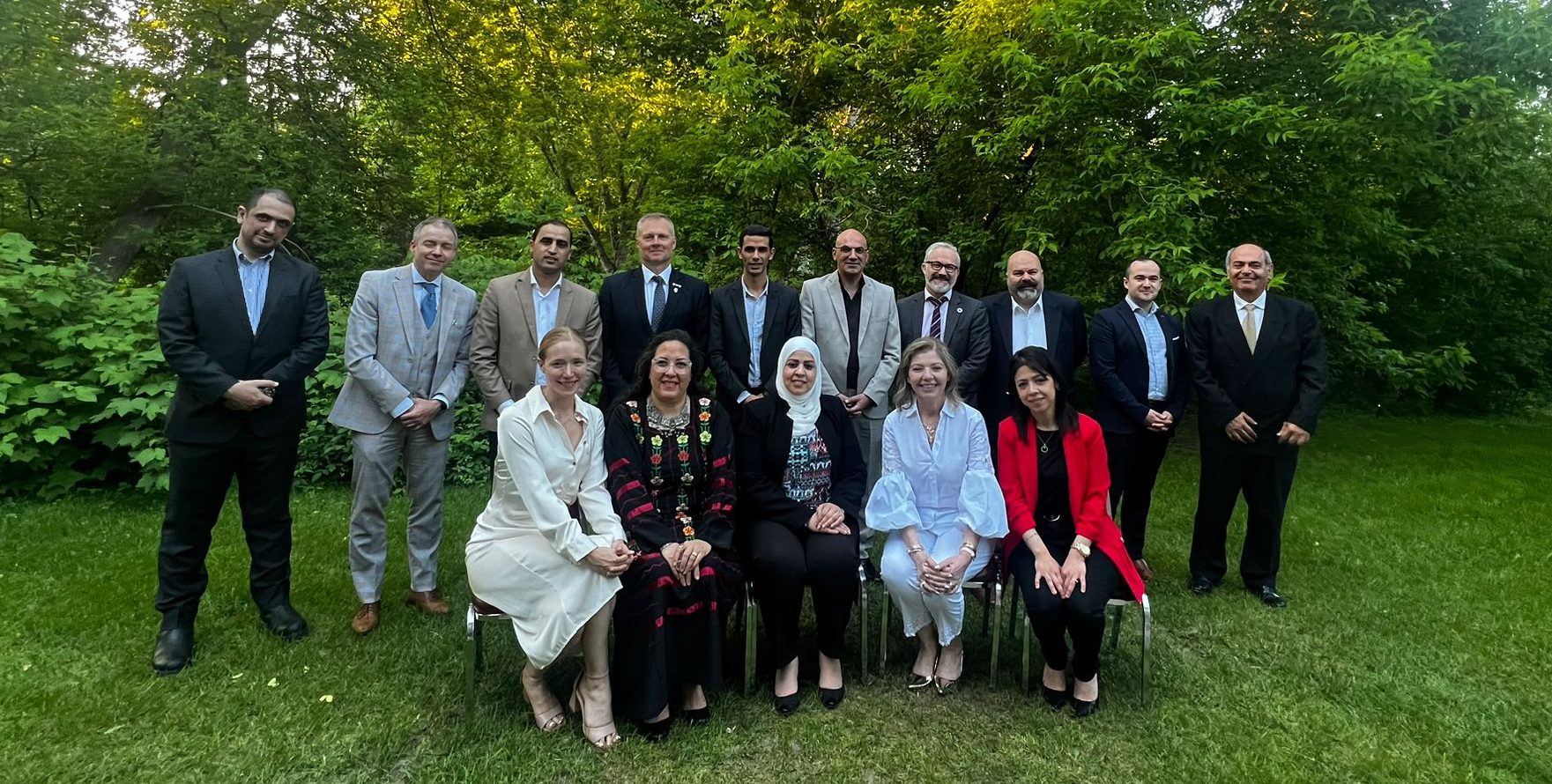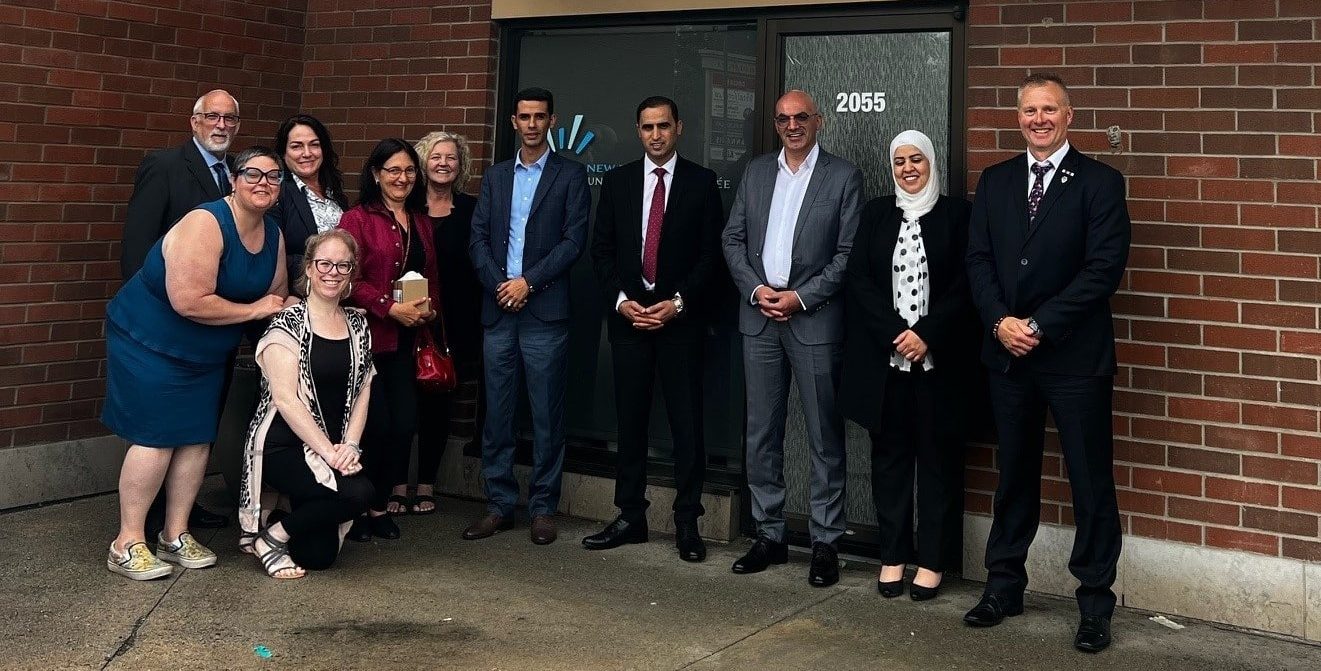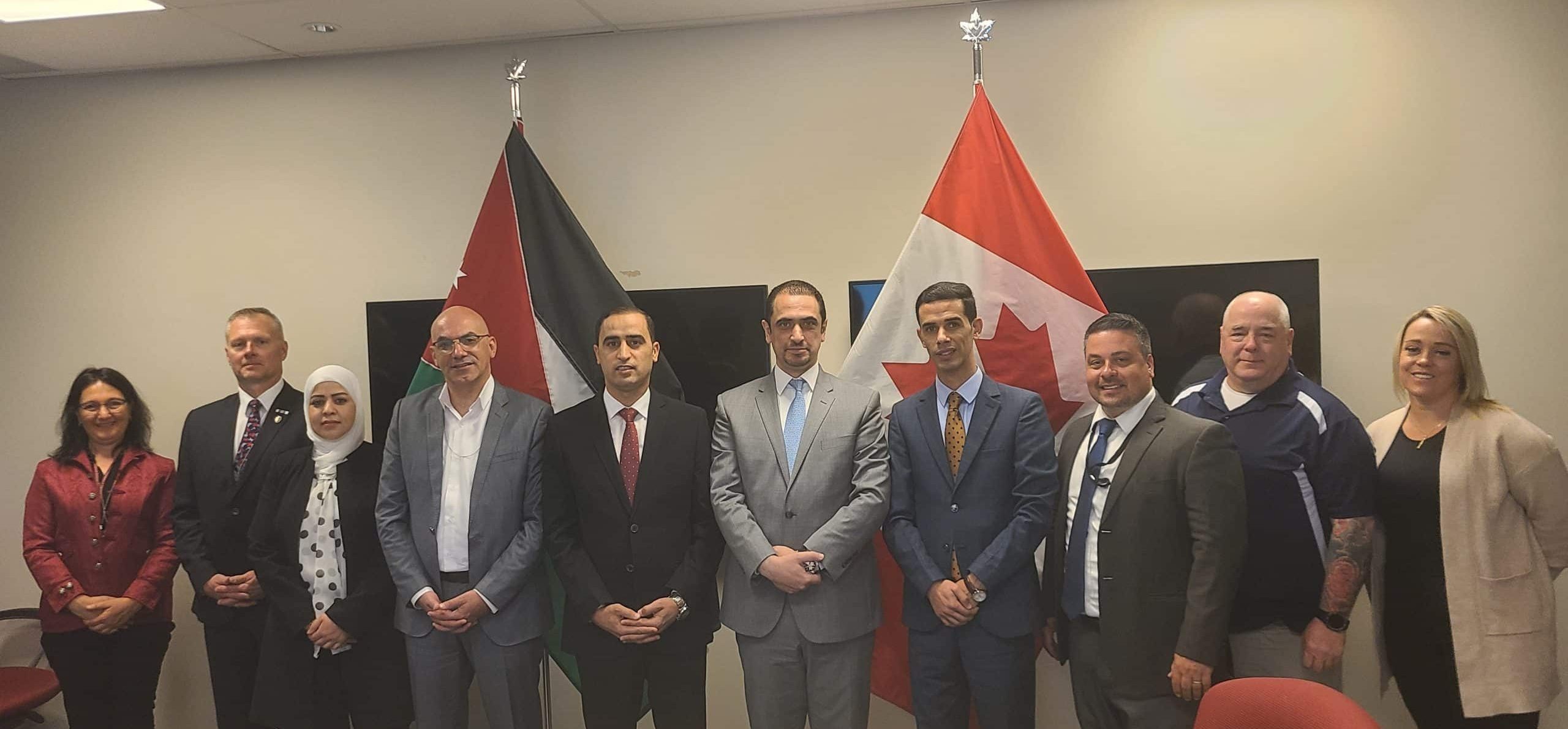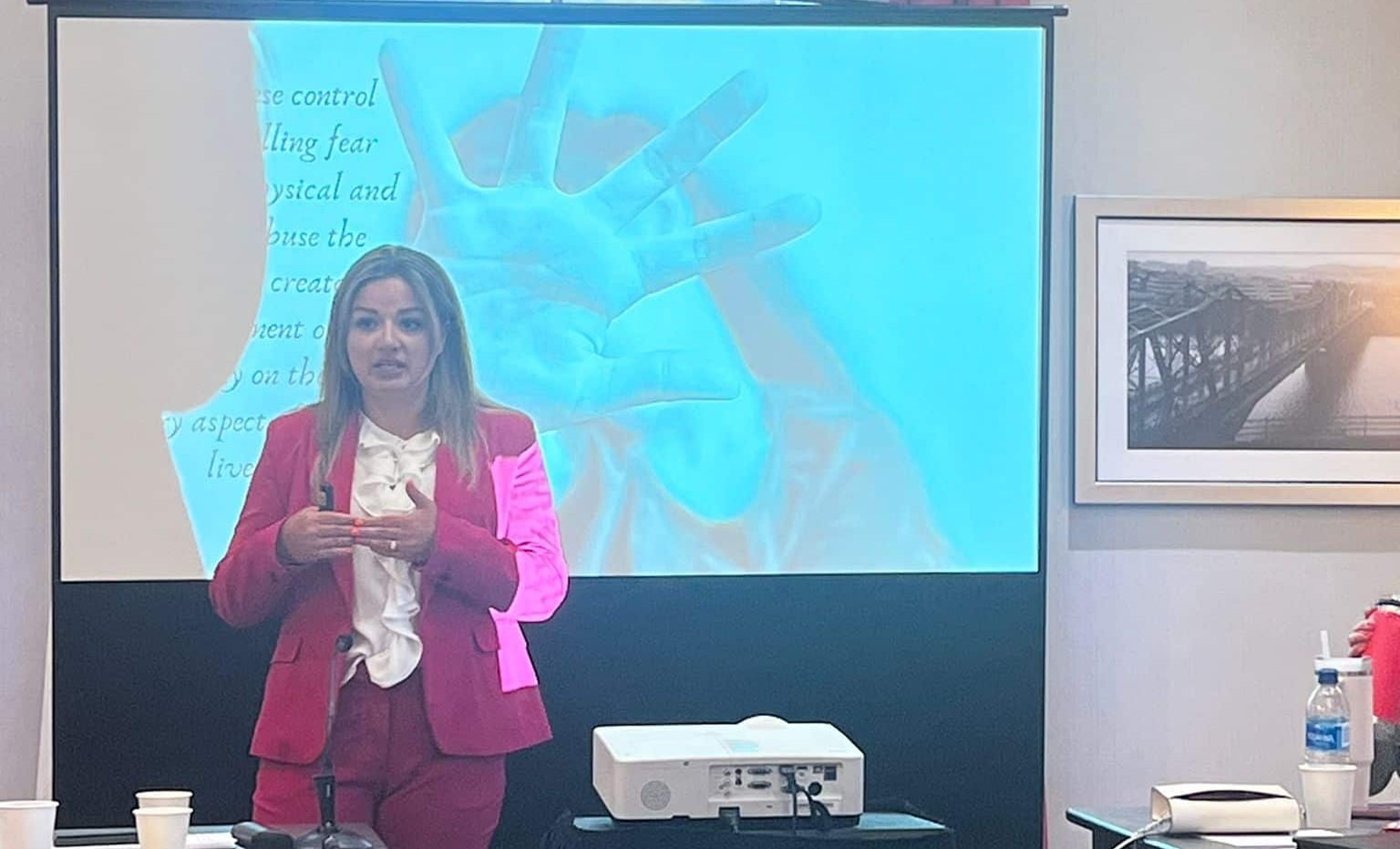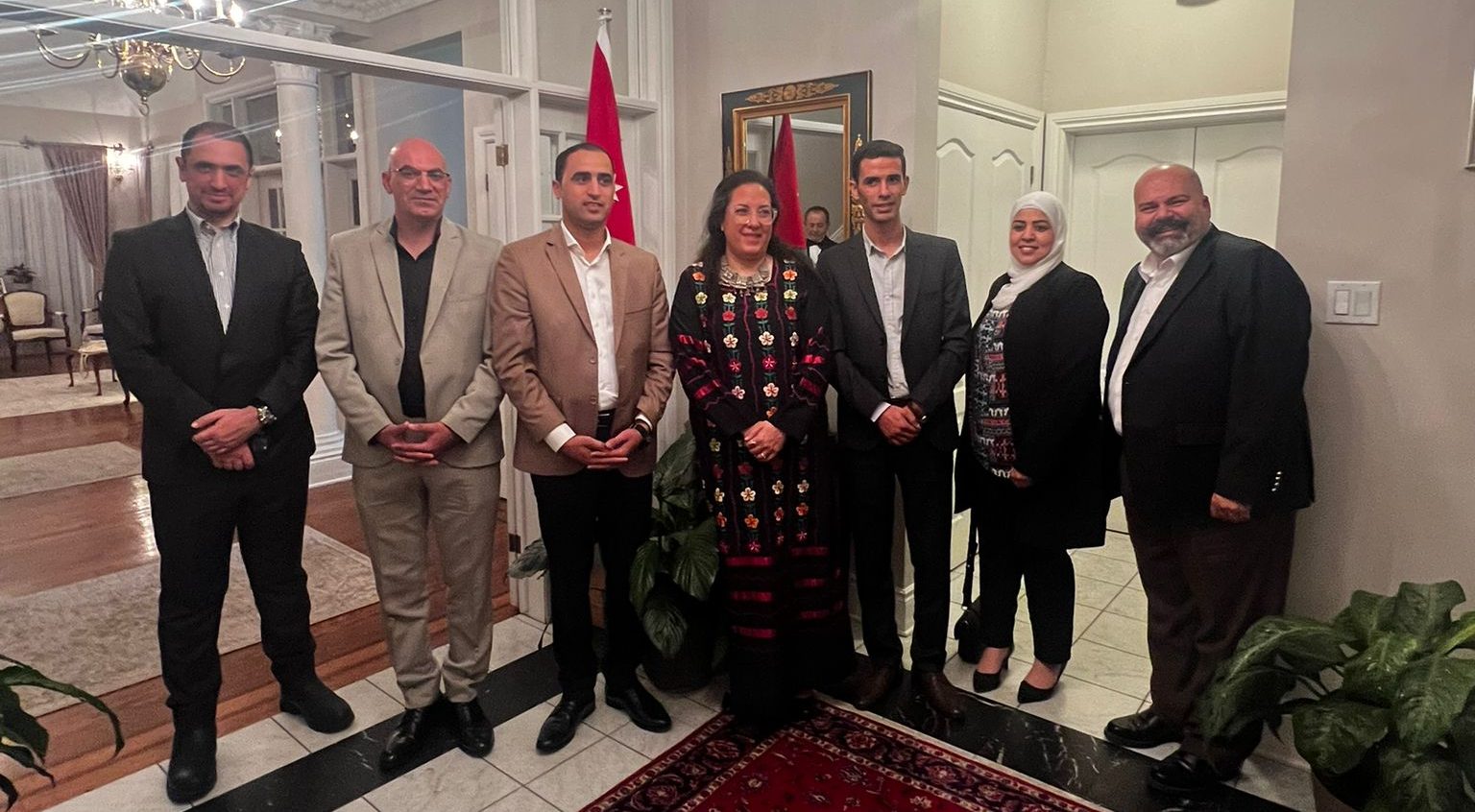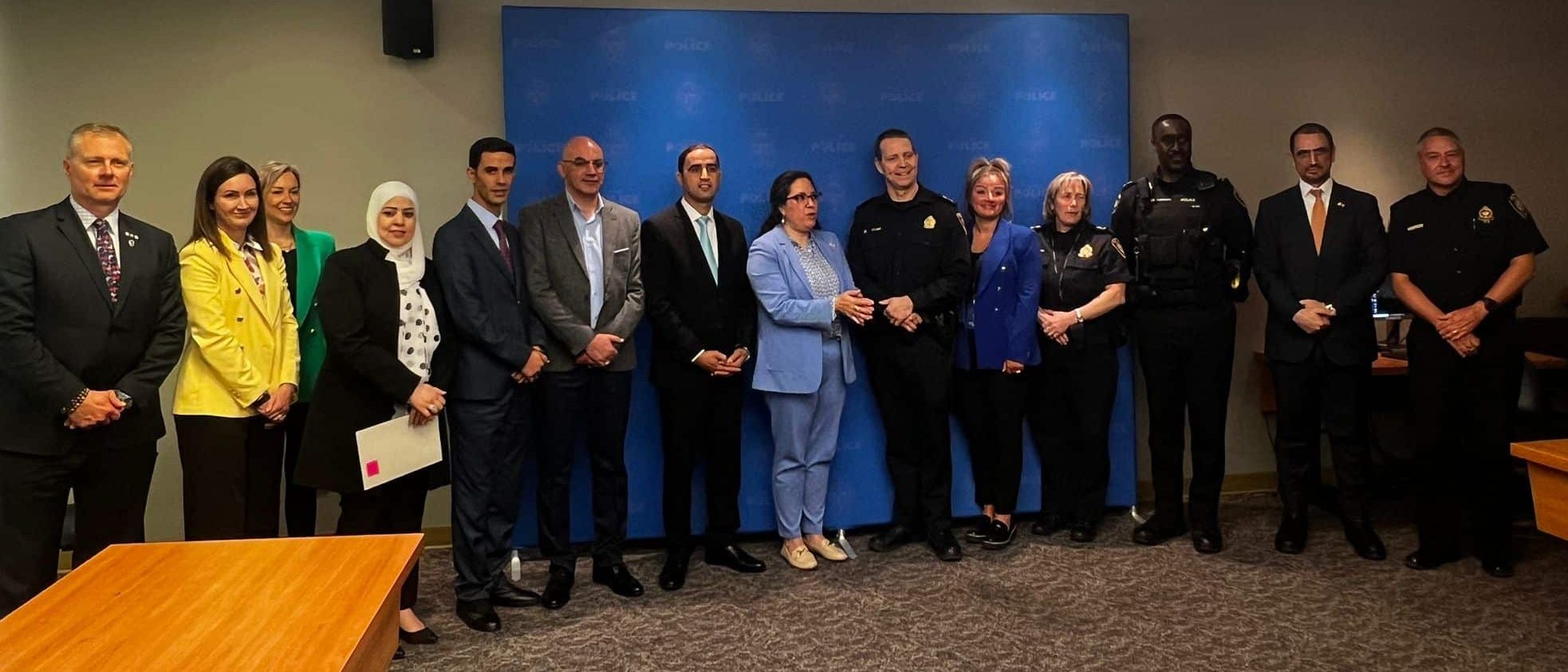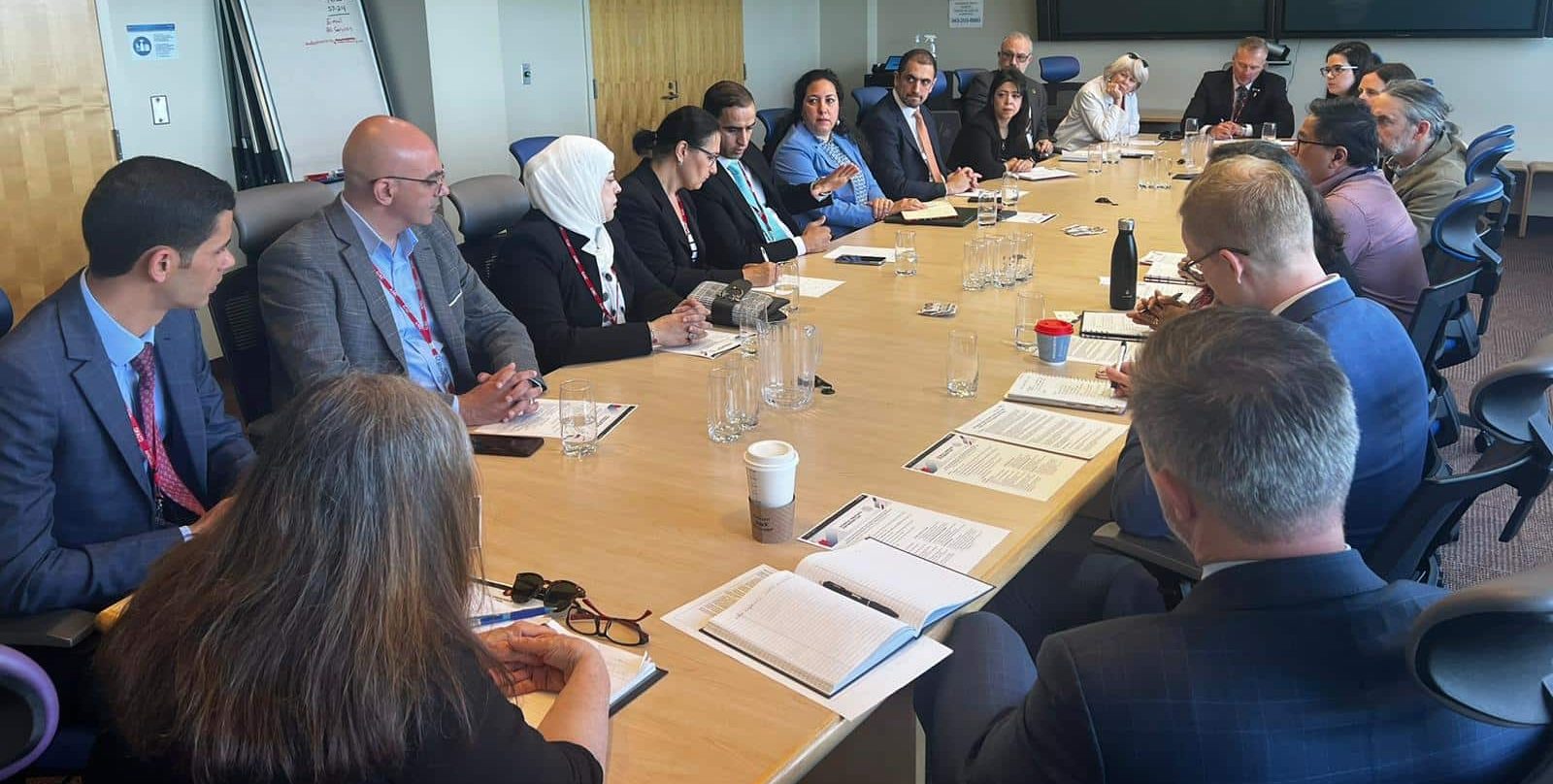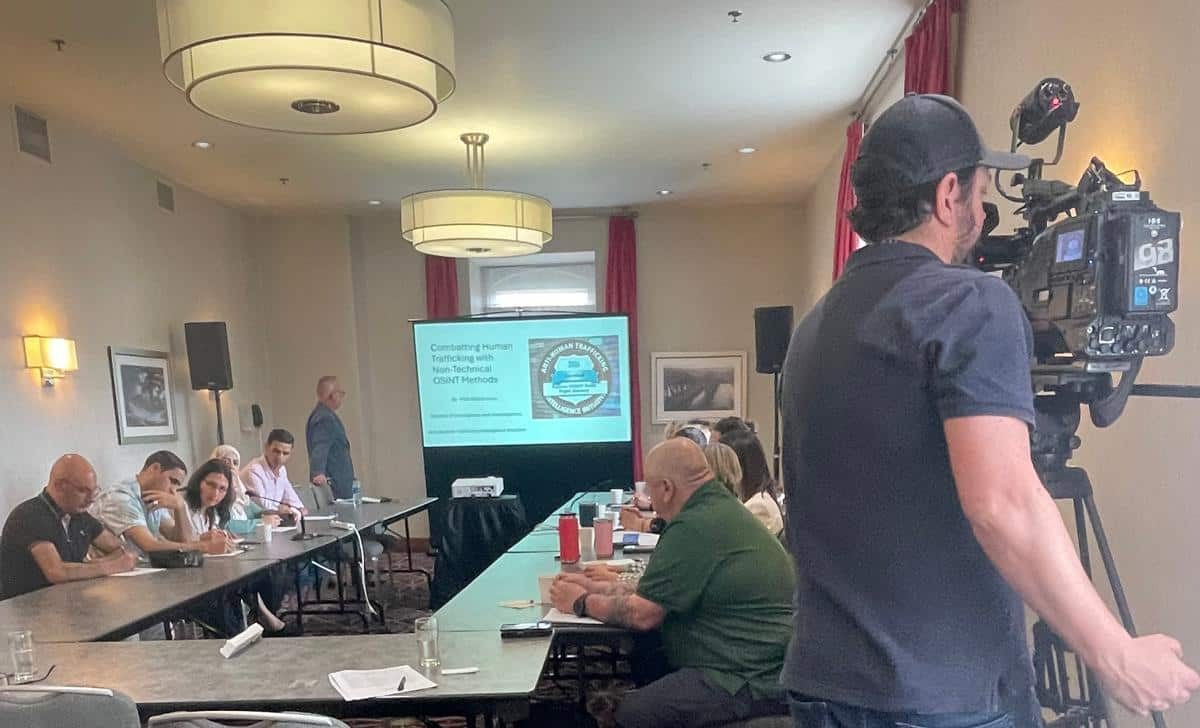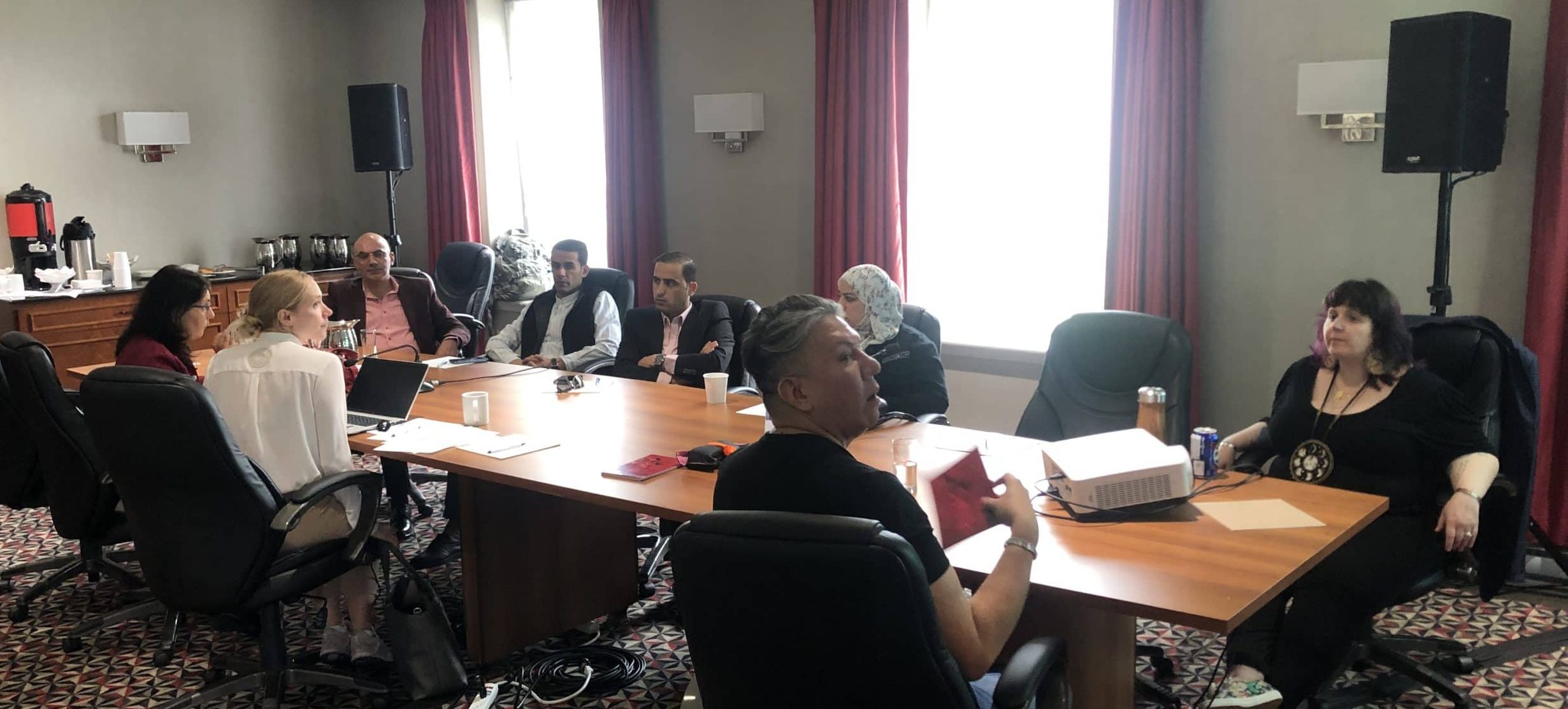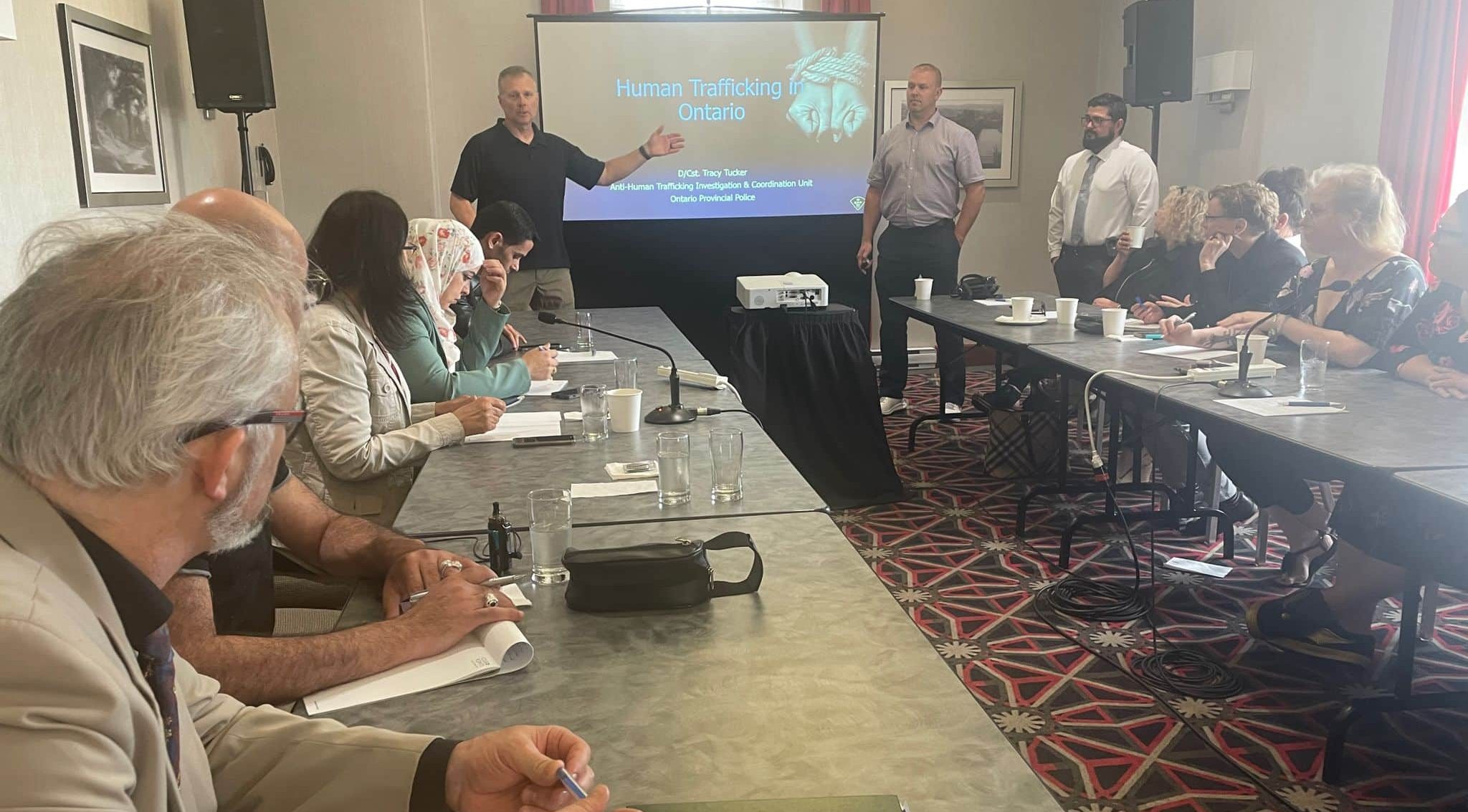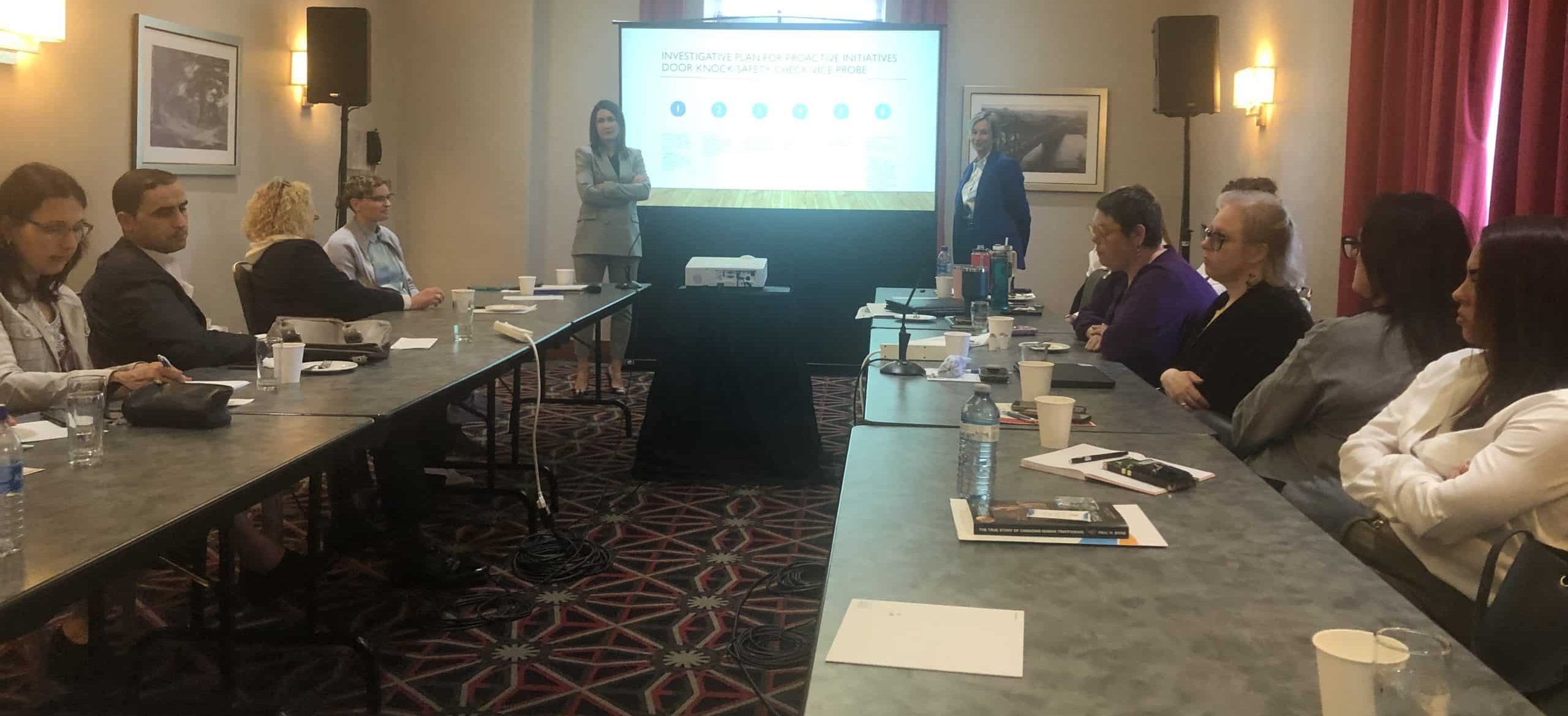Human traffickers in Jordan exploit both Jordanians and foreigners, mainly for forced labour and domestic servitude. To combat this, Jordan has established a specialized police unit, the Anti-Human Trafficking Unit (AHTU) as well as appointed specialized prosecutors and judges to handle trafficking cases. Global Affairs Canada funded Technical Assistance Partnership-Expert Deployment Mechanism (TAP-EDM) initiative, Canadian experts Andrea Wojtak and Wayne Hissong trained members of the AHTU, along with other units within the Public Security Directorate of Jordan (PSD) and first responders in Jordan to enhance their anti-trafficking capabilities. The initial phase of this training was delivered to eighty-one participants from different units within the PSD and other law enforcement agencies followed by a second phase of advanced training to select AHTU officers and other policing units. In the third phase, members of the AHTU were hosted by Alinea International in Ottawa this May to gain insights into Canadian law enforcement experience using trauma–informed and victim-centred anti-human trafficking approaches.
Led by Major Muhammad Al-Khalifat, Head of the AHTU, the delegation included Captain Yazan Sanad Salama Al-Tarawneh, Captain Nawaf Mufid Naeem Ali, and First Lieutenant Abeer Muhammad Al-Shibli, all from PSD’s Criminal Investigation Department Anti-Human Trafficking Unit.
The RCMP played a key role in supporting the Jordanians in this technical assistance. For two years now the RCMP and Global Affairs Canada’s TAP-EDM team have been working to build the knowledge, skills and overall capacity of the Jordanian PSD AHTU. During this visit the PSD AHTU met with a variety of police agencies on a national, provincial, and municipal level as well as several other relevant organizations to learn about the methods and techniques deployed in Canada to successfully combat human trafficking. “The RCMP is proud to have played a lead role in this amazing initiative and we look forward to continue our support moving forward,” said Ali Fayad, Counsellor/Program Manager/International Police Liaison Officer – Amman, Jordan.
During the visit, the delegation had the opportunity to meet with the Jordanian ambassador to Canada, Her Excellency Sabah Al Rafie, along with her team and other high-ranking government officials. They attended several key presentations and meetings that focused on best practices in putting protection and support for victims first and ensuring equal access to justice for visible minorities and diverse populations.
“This program is different than any other bilateral cooperation we received in the past,” said Major Muhammad. “It had many layers over the years, including training, mentoring, and in-person knowledge exchange. I appreciated learning how cases are investigated in Canada using technology and collaboration across departments, agencies, and service providers, focusing on helping victims and their reintegration. We look forward to advancing our technical capacity to combat human trafficking.”
Other sessions included an in-depth discussion with a shelter for victims of trafficking, A New Day, highlighting the importance of a victim-focused, trauma-informed rehabilitation approach tailored to individual goals and aspirations. The challenges of reintegrating victims into their home communities were also addressed. Personal stories shared by survivors and detailed descriptions of Canadian programs for trafficked victims resonated deeply with the delegates.
Simone Bell from the Ottawa Police Service’s Anti-Trafficking Unit, a Human Trafficking Victim Support Specialist for over five years, emphasized that supporting victims is not a straightforward process. She explained how the most challenging part is the exit. The victim is no longer in survival mode, and they begin to feel every trauma they have experienced. Simone also added that people often hear that the police “rescue” the victims; when this is not the case as a rescue for victims comes from within the victims themselves, and everyone else’s role is to support them.
Ontario Native Women’s Association representatives Collin Graham and Justine Barone shared their experiences supporting Indigenous victims of human trafficking in Ontario. They provided the context of the intergenerational trauma that exists in Indigenous and First Nation communities across Canada due to the history of the intersection between colonialism and violence. Other speakers included Susan Orlando from Ontario’s Human Trafficking Prosecution team, who discussed victim-centred approaches, emphasizing the importance of prioritizing victim’s needs and well-being throughout the legal process, and Matt Richardson from the Anti-Human Trafficking Initiative, who provided an OSINT training (Opens Source Intelligence) as a powerful tool to facilitate investigations.
Reflecting on the visit, Andrea highlighted the significance of the exchange, stating, “Our Jordanian colleagues left with a deeper understanding of victim-centred investigations and the best practices their Canadian counterparts utilize to combat trafficking in Canada. Wayne and I were pleased that this visit enhanced an inspiring exchange of ideas and best practices with the delegation. The opportunity to hear from former victims and the cooperation that takes place between Canadian police and victim service providers was valuable.”
Christopher Yeomans, TAP-EDM Project Director, expressed his appreciation on behalf of Alinea International for facilitating this visit to Canada. He acknowledged that significant strides were made in strengthening the Canadian-Jordanian bilateral relationship and thanked Wayne and Andrea for their incredible work coordinating an impressive group of Canadian law enforcement and civil society partners across Ontario.
For more information on this initiative, you can read the project profiles on phase one and phase two.
